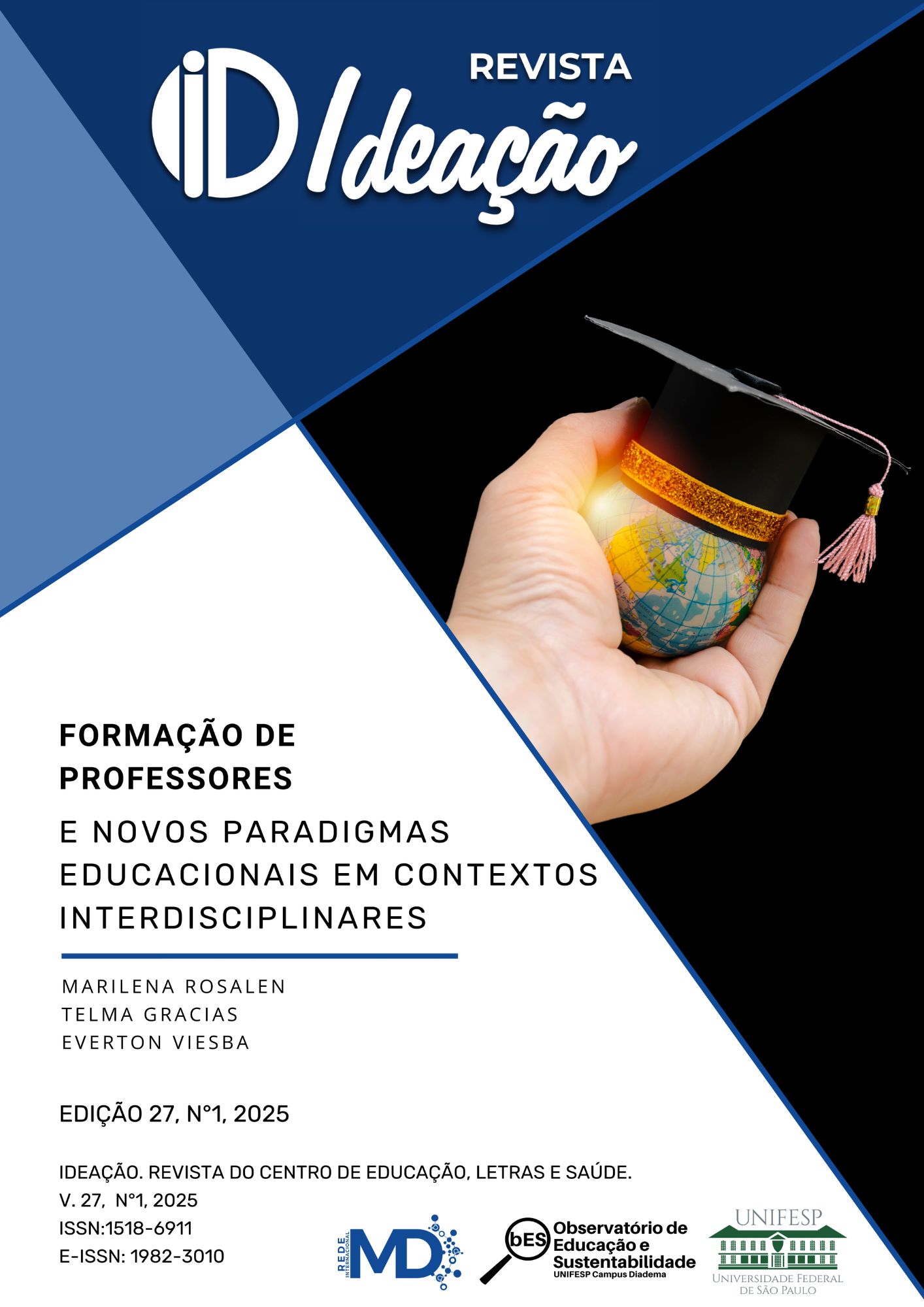FORMAÇÃO DE PROFESSORES DOS ANOS INICIAIS NO BRASIL
CENÁRIOS HISTÓRICOS E ALFABETIZAÇÃO CIENTÍFICA
DOI:
https://doi.org/10.48075/ri.v27i1.34796Palavras-chave:
formação de professores polivalentes, alfabetização científica, necessidades formativas no ensino de Ciências, Quarto de DespejoResumo
O presente texto defende o argumento de que há urgência em repensarmos o currículo da formação inicial dos professores do Ensino Fundamental com vistas à apropriação e desenvolvimento da Alfabetização científica (AC), ao passo que assumimos inicialmente que a formação de professores se desenvolve em vários contextos e espaços que influenciam direta e indiretamente em sua atividade docente. Assim, a partir de uma pesquisa qualitativa, de natureza bibliográfica, deflagrada no processo de doutoramento, investigamos os cenários históricos brasileiros de modo a identificarmos elementos ou situações que caracterizam a formação de professores dos anos iniciais no Brasil à luz da AC. Ao analisar a formação inicial dos professores de anos iniciais no país, com lentes históricas, observamos um cenário de encontros e desencontros até a AC se estabelecer na educação superior; bem recentemente, em função da facilidade ao acesso às tecnologias, principalmente voltadas às mídias sociais, ou seja, apontamos a urgência em ressignificarmos os currículos de formação inicial, potencializando saberes docentes à luz da AC.
Downloads
Publicado
Como Citar
Edição
Seção
Licença
Copyright (c) 2025 Direitos partilhados conforme licença CC BY-NC-SA 4.0

Este trabalho está licenciado sob uma licença Creative Commons Attribution-NonCommercial-ShareAlike 4.0 International License.
Política para Periódicos de Acesso Livre
Autores que publicam nesta revista concordam com os seguintes termos:
1. Autores mantém os direitos autorais e concedem à revista o direito de primeira publicação, com o trabalho simultaneamente licenciado sob a Licença Creative Commons Attribution que permite o compartilhamento do trabalho com reconhecimento da autoria e publicação inicial nesta revista.
2. Autores têm autorização para assumir contratos adicionais separadamente, para distribuição não-exclusiva da versão do trabalho publicada nesta revista (ex.: publicar em repositório institucional ou como capítulo de livro), com reconhecimento de autoria e publicação inicial nesta revista.
3. Autores têm permissão e são estimulados a publicar e distribuir seu trabalho online (ex.: em repositórios institucionais ou na sua página pessoal) a qualquer ponto antes ou durante o processo editorial, já que isso pode gerar alterações produtivas, bem como aumentar o impacto e a citação do trabalho publicado (Veja O Efeito do Acesso Livre).
Licença Creative Commons
Esta obra está licenciada com uma Licença Creative Commons Atribuição-NãoComercial-CompartilhaIgual 4.0 Internacional, o que permite compartilhar, copiar, distribuir, exibir, reproduzir, a totalidade ou partes desde que não tenha objetivo comercial e sejam citados os autores e a fonte.


